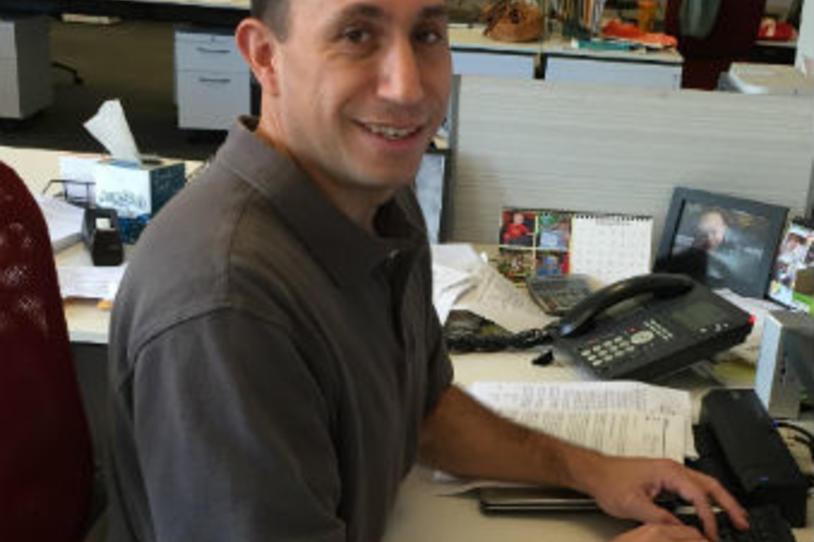
When the Michael J. Fox Foundation launched in 2000, it was, as Michael stated, a "guerrilla organization that was bound by no convention." Within a year, MJFF had distributed $17 million to help finance 57 studies. Those numbers are up to more than $600 million and nearly 1,400 grants. The original six-person staff roster has grown to include over 120 professionals. As progress in the field escalates, the Foundation's scope and strategy intensifies in our effort to reach our goal of finding a cure for Parkinson's disease.
In this new blog series, we talk to some of our longest-serving staffers, those in our "10-Plus Club" who have been part of the Foundation for 10 or more years. They share how their roles and the field has changed since they first joined MJFF.
First, our CEO, Todd Sherer, PhD, talks to Research Programs Coordinator Kathleen Vestuto:
KV: When did you start at the Foundation, and what were your first responsibilities?
TS: I started in April 2003, and I believe my title was scientific manager. I became head of research in 2006 and CEO in 2011.
KV: How different are your responsibilities now from when you started?
TS: Significantly. When I started I was in charge of Community Fast Track (a previous funding program) and managed a portfolio of 50 grants, if that many. Also, they were just relatively small grants at that time. As of last year we had 550 active grants across the Foundation. And obviously I have to be responsible for things beyond research.
KV: What are some of the changes you've seen at the Foundation?
TS: The scope of the Foundation has developed as the scope of more projects has grown, as evidenced by our landmark biomarker study, the Parkinson's Progression Markers Initiative (PPMI), for example. We probably couldn't have conceived of this when I started, even though we knew the need for biological markers of Parkinson's disease to identify risk factors and measure progress. But by 2010, we had enough leads in this area to develop a comprehensive observational study. So we launched PPMI. Our plan was to observe volunteers, with and without the disease, to search for a PD biomarker. We now have nearly 1,000 volunteers in the PPMI database, and our dataset has been accessed by researchers more than 500,000 times. And today the PPMI biosamples are giving us insights into the natural history of PD that were never possible before.
Another big change is our interaction with pharma and education to develop new ideas. An example of this would be our partnership with AbbVie in the development of Partners in Parkinson's, our health initiative that provides educational tools and resources for Parkinson's patients and their loved ones in cities across the country. We average about 500 participants in each of these events with activities and panels moderated by medical and industry professionals, patients and members of our staff. The role that the Foundation plays in bringing together patients, academia and industry to work together is now very much a natural part of what we do.
KV: If you could choose one important change that has occurred since you started at the Foundation, what would it be, and why?
TS: It's a difficult choice. I would say that PPMI is significant, not only because of our goal to develop treatments, but because we get to collaborate with researchers toward achieving this goal. This is one of the most important things about this activity. We're helping to develop and advance potential therapies.
KV: What's the most important advice anyone at the Foundation gave you?
TS: I don't know. What have you told me? Actually, I think it was through training with Debi Brooks, our co-founder and executive vice chairman, and Katie Hood, our former CEO, that I learned not to be afraid to take risks, and remember the main goal here is to improve lives.
KV: What has changed in your life since you started here?
TS: I didn't have any children. I had more hair. I slept more. But I think being able to spend a significant amount of time on a pure mission allows you to stay focused.
KV: Anything else you'd like to add?
TS: My daughter Leah starts kindergarten this week!